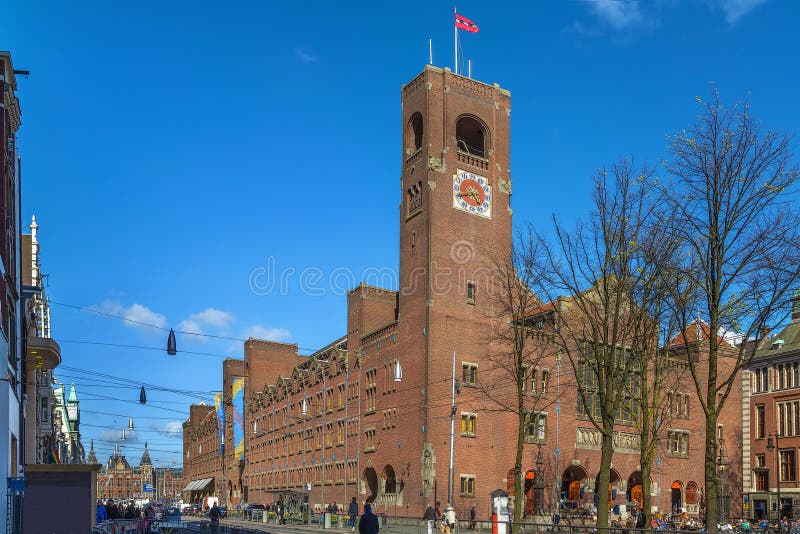Trade War Intensifies: Amsterdam Stock Market Opens Down 7%

Table of Contents
Causes of the Amsterdam Stock Market Decline
The sharp decline in the Amsterdam Stock Market is a multifaceted issue stemming from the intensifying trade war and its ripple effects on the global economy.
Impact of Increased Tariffs
Increased tariffs imposed by various countries are directly impacting Dutch businesses and contributing significantly to the AEX index's fall.
- Specific Industries Affected: The agricultural sector, a cornerstone of the Dutch economy, is facing substantial challenges due to increased tariffs on agricultural exports. The technology sector, reliant on global supply chains, is also experiencing disruptions and decreased profitability.
- Quantitative Data: Tariffs on Dutch agricultural exports have increased by an average of 15%, resulting in a projected €2 billion loss in revenue this year. This directly impacts companies like FrieslandCampina and other major agricultural exporters listed on the AEX.
- Company Performance: Companies heavily reliant on international trade, such as ASML Holding (a major semiconductor equipment manufacturer), have seen their stock prices decline sharply due to uncertainty surrounding global demand and supply chain disruptions.
Global Economic Uncertainty
The broader global economic uncertainty fueled by the trade war significantly impacts investor sentiment. This uncertainty is a key driver behind the Amsterdam Stock Market's decline.
- Global Market Reactions: Stock markets worldwide are experiencing volatility, with major indices in the US, Asia, and Europe showing considerable declines, reflecting a shared concern about the escalating trade conflict.
- Expert Opinions: Leading economists warn that the prolonged trade war could trigger a global recession, further eroding investor confidence and triggering further declines in the AEX index. The International Monetary Fund (IMF) has already downgraded its global growth forecast for 2023.
- Investor Flight to Safety: Investors are moving their capital into safer assets like government bonds, further contributing to the sell-off in riskier assets, including stocks listed on the Amsterdam Stock Market.
Weakening Euro
The weakening Euro is another factor contributing to the decline in the Amsterdam Stock Market. A weaker Euro makes Dutch exports more competitive globally but simultaneously increases the cost of imports.
- Euro Performance: The Euro has experienced a steady decline against the US dollar and other major currencies in recent months, exacerbating the negative impact of the trade war on Dutch businesses.
- Impact on Exports and Imports: While a weaker Euro might boost exports in the long run, the current economic climate, characterized by trade uncertainty, negates this potential benefit. The increased cost of imports further squeezes profit margins for Dutch companies.
- Potential for Further Devaluation: The ongoing trade war could lead to further Euro devaluation, placing additional pressure on the AEX index and potentially triggering a more significant stock market crash.
Potential Consequences for the Dutch Economy
The 7% drop in the Amsterdam Stock Market signals serious potential consequences for the Dutch economy.
Impact on Dutch Businesses
The current situation poses significant challenges to various sectors of the Dutch economy.
- Businesses at Risk: Small and medium-sized enterprises (SMEs), particularly those reliant on international trade, are highly vulnerable to the negative impacts of the trade war. Many face potential bankruptcy or significant job losses.
- Potential Job Losses: The decline in economic activity and reduced business confidence could lead to substantial job losses across various sectors, impacting the Dutch unemployment rate and social welfare systems.
- Government Responses: The Dutch government may implement stimulus packages or other interventions to mitigate the negative effects on the economy, but the effectiveness of these measures remains uncertain in the face of a global trade war.
Consumer Confidence and Spending
The stock market crash is likely to negatively impact consumer confidence and spending habits.
- Consumer Confidence Indices: Consumer confidence indices are already showing signs of decline, reflecting growing anxieties about the future economic outlook.
- Decline in Consumer Spending: Reduced consumer spending could lead to a further slowdown in economic growth, creating a vicious cycle of economic contraction.
- Impact on Economic Growth: The combined impact of reduced business investment and consumer spending could lead to a significant contraction in the Dutch GDP.
Long-Term Economic Outlook
The long-term economic outlook for the Netherlands remains cautious, given the uncertain trajectory of the global trade war.
- Expert Predictions: Many economists predict a prolonged period of economic uncertainty, with the potential for a moderate recession in the Netherlands if the trade war continues to escalate.
- Potential for Economic Recovery: The speed and strength of any economic recovery will depend heavily on the resolution of the trade disputes and the effectiveness of government interventions.
- Mitigation Strategies: Strategies to mitigate the negative impacts could include diversification of export markets, increased investment in domestic industries, and fostering innovation to improve competitiveness.
Conclusion
The 7% drop in the Amsterdam Stock Market reflects the serious implications of the escalating trade war. The decline highlights the interconnectedness of global markets and the significant impact of trade policies on national economies. The potential consequences for Dutch businesses and the broader economy are substantial, requiring careful monitoring and strategic responses. The Amsterdam Stock Market's performance remains highly sensitive to global trade tensions.
Call to Action: Stay informed about the evolving situation affecting the Amsterdam Stock Market and the ongoing trade war. Regularly check reputable financial news sources for the latest updates on the AEX index and its performance in relation to global trade tensions. Understanding the dynamics of the Amsterdam Stock Market and its sensitivity to global trade is crucial for making informed investment decisions.

Featured Posts
-
 Svadby Na Kharkovschine 600 Brakov Za Mesyats Tendentsii I Statistika
May 24, 2025
Svadby Na Kharkovschine 600 Brakov Za Mesyats Tendentsii I Statistika
May 24, 2025 -
 Best Of Bangladesh In Europe Returns For Its 2nd Edition A Focus On Collaborative Growth
May 24, 2025
Best Of Bangladesh In Europe Returns For Its 2nd Edition A Focus On Collaborative Growth
May 24, 2025 -
 Amundi Dow Jones Industrial Average Ucits Etf How To Interpret Net Asset Value
May 24, 2025
Amundi Dow Jones Industrial Average Ucits Etf How To Interpret Net Asset Value
May 24, 2025 -
 Matt Malteses Sixth Album Her Exploring Intimacy And Personal Growth
May 24, 2025
Matt Malteses Sixth Album Her Exploring Intimacy And Personal Growth
May 24, 2025 -
 Amundi Msci World Ex Us Ucits Etf Acc A Comprehensive Guide To Net Asset Value
May 24, 2025
Amundi Msci World Ex Us Ucits Etf Acc A Comprehensive Guide To Net Asset Value
May 24, 2025
